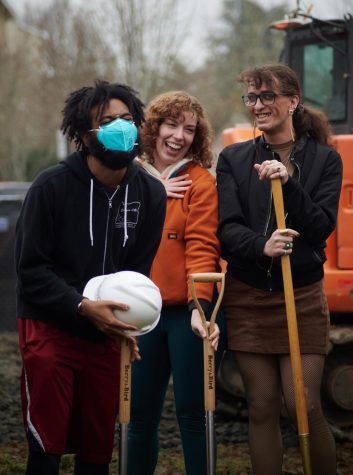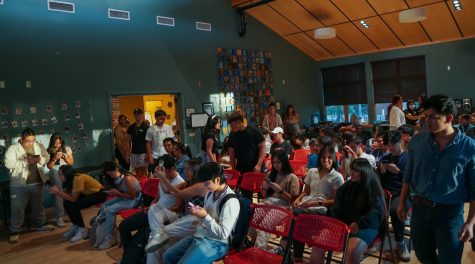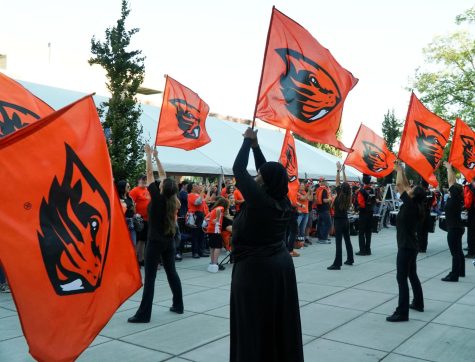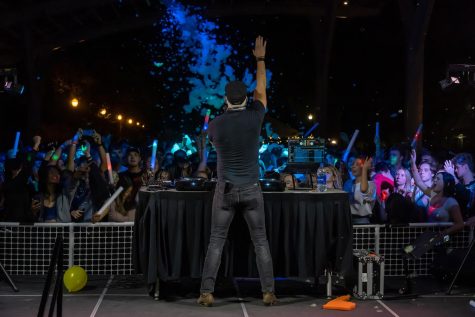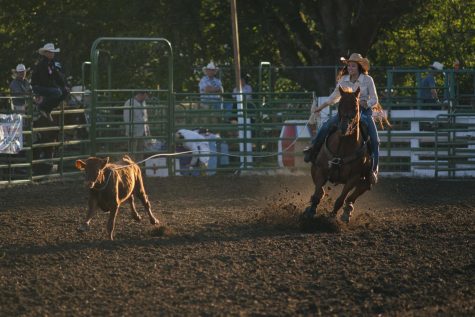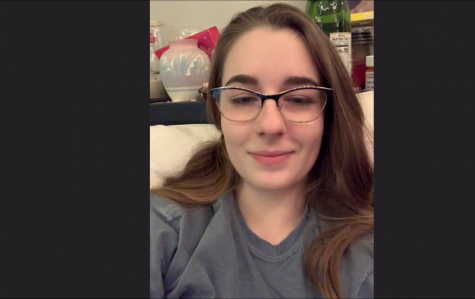2020 graduates enter job market amidst pandemic, economic recession
July 8, 2020
Editor’s Note: This article is a part of the 2020 graduation issue. Graduation is when a student completes their degree program, whereas, Commencement is an optional ceremony to celebrate graduating students. The Baro put together a graduation issue rather than a Commencement issue because OSU’s 2020 Commencement ceremony has been postponed due to COVID-19.
Oregon State University’s Class of 2020 graduates share their perspectives on the future as they find themselves entering the job market amidst a global pandemic and an economic recession.
The recent COVID-19 pandemic has effectively shut down the United States economy, with the Dow Jones Industrial Average, an index predicting the behavior of the U.S. stock market, plummeting in its lowest decrease in history in March of this year, due to closures and social distancing measures intended to prevent deaths by COVID-19.
The economy is starting to reopen again, despite a recent increase in cases of COVID-19 in Oregon and around the world. At the time of publication, the United States has seen 130,435 confirmed deaths due to COVID-19, with 220 of the deaths in Oregon.
Tristan Hilbert, who recently graduated with a Bachelor’s degree in computer science, said he felt lucky to have a major that allows him to work remotely.
“I think that individuals like me, whose tasks can easily be done remotely, will fare fine in the job market. Even without a job, there are several boards and freelance opportunities that I could use to supplement income,” Hilbert said in a statement over email. “I think the hard thing for me is, thanks to quarantine, a short-term effect will now dramatically change my potential workplace forever. My dad is an engineering manager himself and we share our own guesses that companies will no longer force employees to show up to the office.”
Hilbert expressed sympathy for majors whose work doesn’t translate as smoothly to remote delivery.
“I feel lucky and privileged to be in this position despite being jobless. I could only imagine the hardship mechanical and electrical engineers must go through since their positions typically require in-house stations,” Hilbert said.
Rachel Wheeler, a recent zoology graduate, said she felt her degree put her at a particular disadvantage in the current economy.
“I already didn’t have much faith in being able to find a job related to my field right off the bat, but now with COVID happening all of the places I had wanted to apply are closed with no clear sign of opening any time soon,” Wheeler said. “I’m currently working at a Dairy Queen and trying to find some sort of clerical work, but even that is hard to come by since a lot of offices are only just now becoming operational again.”
Research done by the Stanford Institute for Economic Policy Research has shown that students who graduate during economic recessions earn less than peers who graduate during stable job markets, for up to 15 years after graduation, and may face higher rates of mid-life mortality.
“Not only is it harder to find a job when the economy is slow, but some research has shown that there can be a lasting impact on earnings for those who started their career during a recession,” Jon Chesbro, economics instructor in the School of Public Policy at OSU, said in a statement over email.
Tianna Coburn, a recent chemical engineering graduate, said she felt the job market has drastically changed the post-graduate plans for many of her friends.
“Many of my peers have either had their internship ‘indefinitely postponed’ or completely canceled, and some companies didn’t even notify them until a couple of weeks before they were supposed to start. Some of my friends, who are highly competent individuals and have excellent resumes, were in the process of applying for jobs when COVID-19 hit. Job applications were quickly taken down, and some companies ghosted mid-application. I know of people who applied for grad school specifically because they couldn’t find a job,” Coburn said in a statement over email. “There are always unknowns when starting a new chapter, but in the face of our current economic climate, it feels like we’re walking in the dark.”
Coburn said she felt lucky to have been able to keep her internship, even as it transferred to remote delivery, and that she was confident about the future of the Class of 2020.
“I typically like to make plans far in advance, but COVID has shown that the best-laid plans can shatter in a day—it is imperative that my fellow graduates and I are flexible and willing to adapt. However, despite this situation, I have faith in all of my classmates. We’re resilient, hard-working and creative, and we’ll all find our way in due time,” Coburn said.















































































































